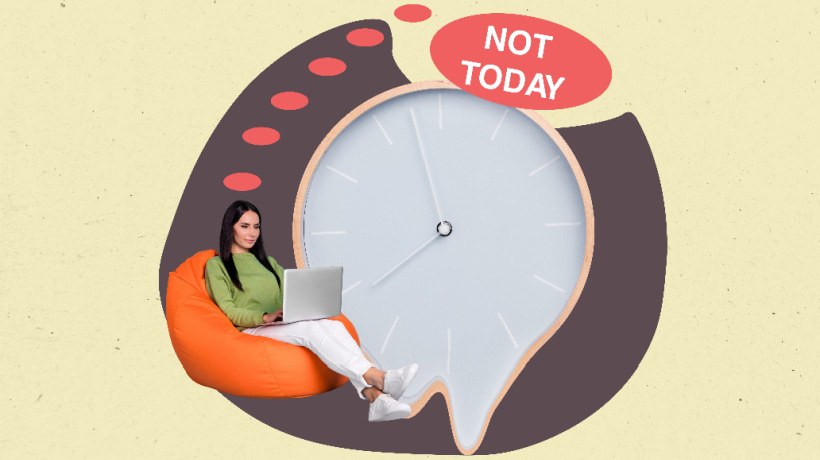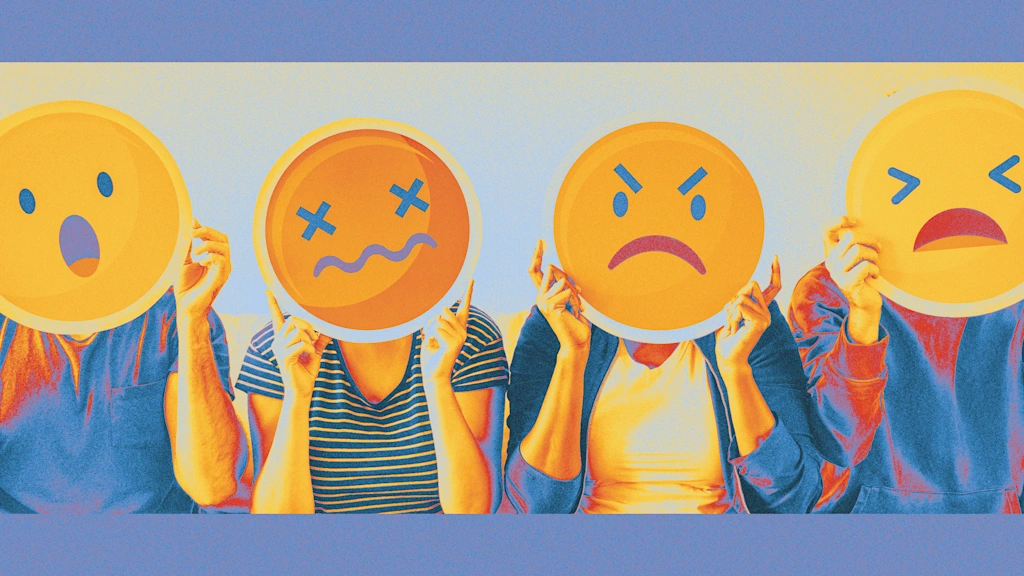#emotion-regulation
#emotion-regulation
[ follow ]
#parenting #mindfulness #mental-health #coping-strategies #emotional-intelligence #cognitive-reappraisal
fromPsychology Today
1 week agoWhy Emotion Regulation Is Often Misunderstood
"You need to regulate your emotions." It's one of the most common pieces of advice in therapy, self-help, and everyday life. We're told to manage feelings, reframe thoughts, stay calm, and cope better. But modern affective science suggests that our everyday understanding of emotion regulation is incomplete-and sometimes misleading. Research across psychology, neuroscience, and cross-cultural studies shows that regulation is not a single skill you either have or lack.
Psychology
fromPsychology Today
1 week ago2 Important Strategies for Having Difficult Conversations
Relationships that matter will, at some point, require two people to sit across from each other and have a hard conversation. Disappointment, hurt, boundaries, power, change, or loss-no matter how emotionally challenging the topic, they're all non-negotiable subjects that need to be discussed in relationships. In a sense, they're a part of the regular relationship curriculum that people don't talk about.
Relationships
fromPsychology Today
2 weeks agoHow Can Patience Help You Deal With Life's Frustrations?
Patience is a capacity to endure difficulties, frustrations, and suffering with some sense of calm. Perseverance, self-regulation, and judgment are components of patience. Patience can help you manage your emotions, reactions, and responses in stressful situations. While positive psychologists don't specifically name patience as one of the top 24 character strengths, it is seen as an important element of human behavior. Strengths researchers propose that patience is an amalgam of several recognized character strengths, including perseverance, self-regulation, and judgment (Niemiec, 2018; Peterson and Seligman, 2004).
Mental health
fromFast Company
2 weeks agoHow to use psychology to shift a difficult relationship into a healthier one
Relationships can feel like both a blessing and the bane of your existence, a source of joy and a source of frustration or resentment. At some point, each of us is faced with a clingy child, a dramatic friend, a partner who recoils at the first hint of intimacy, a volatile parent, or a controlling boss - in short, a difficult relationship.
Relationships
fromFuturism
3 weeks agoScientists Say Go Ahead, Keep Gooning
Adult content has never been as accessible as it is now, thanks to the internet. Hell, online smut played a major role in the rise of the web itself in the 1990s. With that glut of porn, some have voiced concerns that some people are consuming too much of the stuff or even becoming addicted, which they claim could have consequences like regulating emotions or impaired sexual functioning.
Public health
fromPsychology Today
1 month agoHow Culture Shapes What We Feel-and What We Think We Should Feel
A large global study across 69 countries found something unexpected: the more individualistic a society is, the more similar people are in how they feel-and in how they want to feel. Across 59 out of 60 emotions, emotional experiences showed greater uniformity in individualistic cultures. This challenges the common assumption that collectivistic cultures are emotionally restrictive because they suppress individuality. In fact, emotional life in individualistic societies appears to be shaped by strong shared norms that dictate which emotions are acceptable, desirable, or problematic-especially regarding negative emotions.
Psychology
fromPsychology Today
1 month agoNew Year, Same Us: One Headphone, One Song, One Walk Home
The day before school resumed, Sara spent the afternoon with her daughter, just being together-nothing extravagant, just simple delights: a playdate, a temporary face tattoo (because, why not?), pockets of slow time woven together. On the walk home, the temperature dropped sharply. The subway felt impossibly far. Her daughter said she was too cold, too tired, too done. So they shared a pair of headphones.
Parenting
fromPsychology Today
1 month agoTreatment for Young Children With BFRBs: The Essentials
When a young child pulls their hair, picks their skin, or bites their nails to the point of injury, it's natural for the adults in their lives to want to focus on stopping the behavior. Parents want to prevent their child from experiencing harm, and clinicians want to help the child gain control and relieve their parents of worry. But with body-focused repetitive behaviors (BFRBs), especially in young children, control is rarely the place to start.
Mental health
fromPsychology Today
1 month agoTantrums: They're Not Just for Kids
Let's talk about meltdowns and temper tantrums. Arms flailing, feet stomping, the full body drop-to-the-ground moment. For toddlers, the image is all too familiar. For those of us who have older children, we take a sigh. But are tantrums just for toddlers? No, they aren't. The tantrum meltdown isn't just for kids. It's also an experience many teens, young adults, and adults experience on the regular. They just look a little different now. Let me explain.
Parenting
Mindfulness
fromBusiness Insider
1 month agoI research self-regulation for a living. As a parent, it can be hard to follow my own advice.
Parent emotional self-regulation strongly influences children's self-regulation; practicing breathing, self-talk, and aerobic exercise improves parental emotion control and benefits parenting.
fromPsychology Today
3 months agoHow I Reduced Unwanted Behavior in a Preschool Classroom
One key insight from these observations is that when teachers correct kids when they are engaging in unwanted behavior, many kids shut down or escalate, becoming defiant, melting down, or getting more aggressive. This is especially true for kids who are highly sensitive, big reactors, by nature. They are quick to shame and process corrections as indictments of their personhood. They get so flooded with emotion that they can't process whatever lesson the adult is trying to impart.
Parenting
fromPsychology Today
3 months agoThe Black Hole of the Demanding Perfectionist
Children can be, and usually are, demanding. A parent may recall their fussy child's tantrums over a particular meal or toy, remembering the challenge of getting it just right. Children expect, and rightfully so, their parents to know what's good for them, even when they don't know themselves. Ultimately, it's the parent's responsibility to calm, which all of us accept as the natural state of things.
Relationships
fromPsychology Today
3 months agoCalm the Worry Chatter
When you name what you're feeling you're not just talking. You're helping your brain shift gears. Research shows that labeling emotions reduces activity in the amygdala, the part of your brain that sounds the alarm. At the same time, it activates the prefrontal cortex, the part that helps you think clearly and make good decisions (Lieberman and colleagues, 2007). Naming your emotions helps you move from panic to power.
Mindfulness
fromHuffPost
3 months agoThese Are The Most Common Fights Between Close Friends, According To Therapists
"That stage of life is all about figuring out who you are, which means emotions run high and identity can feel more fragile," said Kristin Anderson, licensed clinical social worker, founder of Madison Square Psychotherapy . "Because teens are still developing emotion regulation skills, small misunderstandings can escalate quickly in ways that are less common in adult relationships."
Relationships
fromPsychology Today
4 months agoDistress Tolerance Techniques to Manage Your Emotions
If you feel like there are times when your emotions quickly escalate and spin out of control, it may also feel like there's nothing you can do about it. Perhaps others have told you that you are "overreacting" to situations that typically do not evoke such intense feelings. But being told by others to "calm down" feels dismissive to you, and it invalidates your strong emotions.
Mental health
Parenting
fromIndependent
4 months agoUnderstanding children's emotions: 'Tantrums aren't a sign of being spoilt or bold - they're a normal part of brain growth'
Tantrums reflect normal brain development; parents can help children regulate big feelings through calm validation, structured routines, clear limits, and developmentally appropriate guidance.
fromBig Think
5 months agoHow our expectations shape what we see, hear, and feel
It can certainly feel like emotions happen to you. That they bubble up and cause you to do and say things, but that experience is an illusion that the brain creates. Not everybody has as much control as they might like, but everybody has a little more control than they think they do. When you're experiencing emotion or you're in an emotional state, what your brain is doing is telling itself a story about what is going on inside your body.
Science
fromBig Think
6 months agoSam Harris: Experience emotions without being consumed by them
I mean, the amazing thing about our circumstances that each one of us is in a position that is in some sense, as free and as profound and as in touch with reality, as any other position in this universe, where you stand, the universe is illuminated as you, as your experience in this moment. And that we call this substratum of experience, consciousness, for lack of a better word.
Mindfulness
[ Load more ]










